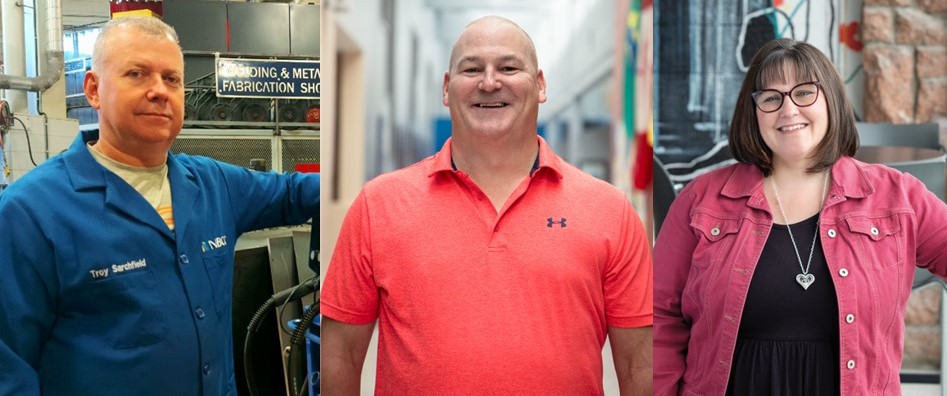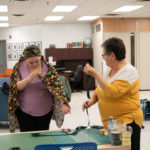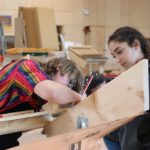At NBCC, students learn by doing; experiential learning is at the heart of the NBCC Advantage. They also learn from the lived experiences of masters in their chosen fields.
Across disciplines and sectors, NBCC’s faculty is made up of subject matter experts who were at the top tier of their professions before coming to NBCC to share their skills and knowledge with the next generation.
Troy Sarchfield, who graduated from NBCC’s Welding program in 1989 and the Welding Engineering Technology program in 1996, spent nearly two decades as a welder, welding supervisor, welding inspector, and quality control manager before joining NBCC’s Trades faculty in 2008. He is a triple Red Seal tradesperson, with certification in Welding, Steel Fabrication, and Mobile Crane, and is certified by the Canadian Welding Bureau, the Welding Institute of Canada, and the New Brunswick Society for Certified Engineering Technicians and Technologists.
“I’ve been in the welding trade since I was 17, when I took my first course, and I’m currently 52,” he said. “It’s a different world now than when I took welding. There’s more theory, modern equipment, more help for students.”
As the Coordinating Instructor for the Welding and Metal Fabrication program at NBCC Woodstock Campus, he’s had direct involvement with curriculum development and equipment acquisition to build the program to its current success.
“I have former students who are now welding instructors and welding shop owners,” he said. “I’ve seen them progress on to a fairly high level in the industry, and that is rewarding.”
The most gratifying part of the job for Troy is the moment when comprehension dawns for a student who has been struggling with a concept.
“I really like when they get that click and they start to learn,” he said. “I love to watch them learn.”
Michael Gallagher, an instructor in the Justice Studies: Police Foundations program at the Miramichi Campus, spent 31 years patrolling the city as a member of the Miramichi Police Force. When the opportunity to work at NBCC came up, he didn’t hesitate.
“The Miramichi Police Force has always had a really close partnership with the Police Foundations program at the college, so I had been many time presenting to students. I could see that the atmosphere was great, there was a great team, and this was a well-respected program.
“I’m honoured to be part of it.”
Michael enjoys sharing his years of experience and the wisdom he’s gained along the way with the next generation of public safety personnel. But the students aren’t the only ones learning!
“I learn from the students as well, what they’ve seen and how they think about policing,” he said. “They have so much energy, they’re so excited about the career.
“It’s nice to be able to share that energy with them.”
Before taking on a faculty position in the Practical Nurse program, Stephanie Ruckstuhl worked with isolated seniors and exceptionally-abled adults. During the 1998 ice storm, she witnessed elderly clients simply making do and getting on with things when they were without electricity for weeks on end. The experience gave her a lasting respect for the resiliency of some of society’s most vulnerable people and inspired a lifelong passion for caring for others.
“They taught me more about endurance and just making things work than I ever would have learned from anyone else,” she said. “It made me want to be an advocate for my patients, and that’s what made me go into teaching. I wanted our nurses to ask, what are patients saying, what do they need?”
In her classroom at St. Andrews Campus, Stephanie has posted a sign that reads, “Nothing About Me, Without Me.” It’s a reminder to her students that patients should always be part of the decision-making process when determining their care.
Blessed with “a bit of a research mind,” Stephanie has ample opportunity to flex her research muscles at NBCC. Notably, she led a three-year research project on peer mentorship and role modelling that exemplified NBCC’s commitment to enriching the student experience through applied research. Together We Can increased pro-social skills and positive identity in teenage girls and was NBCC’s first project to be funded by the Social Sciences and Humanities Research Council of Canada (SSHRCC).
“NBCC is the forefront of everything I’ve done,” she said. “I love my work and the community aspect of what we do. NBCC stands for everything I believe in.”





